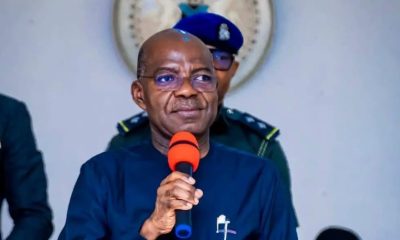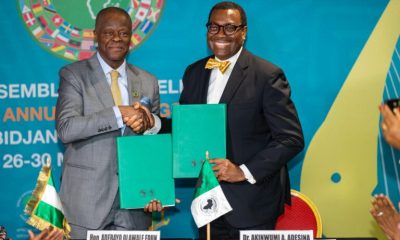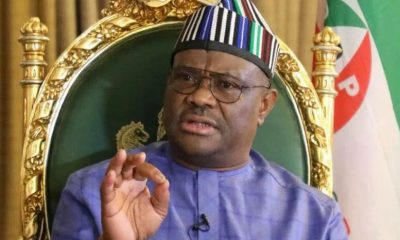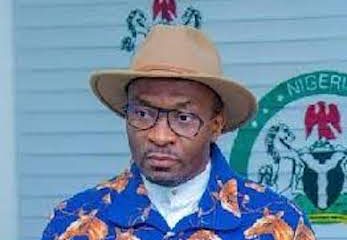OPINION
Supreme Court Ruling: Long Walk to Council Autonomy

By Taiwo Adisa
When the Supreme Court of Nigeria on July 10 gave a landmark ruling granting financial autonomy to the 774 local governments operating in the country, the nation’s political firmament was thoroughly shaken. Some accused the apex court of practically murdering federalism.
Others, however, hailed the ruling as capable of igniting development at the grassroots.Local governments have suffered more than enough in the hands of the states, which have lorded over them, using the instrumentality of Section 162 (6) of the 1999 Constitution, which mandates each state to operate a joint state and local government account, into which “shall” be paid all allocations to the local governments of the state from the federation account.
With the constitutional provision, the states have become the masters of the game. Many states emasculate the local governments at will, initiating contracts in their name and paying the funds at source. However, there is no commonality to this occurrence because some states allow their councils to run.
The number is, however, negligible. The majority of the states don’t allow such freedom. What we have seen is an extreme situation on either side. Those who allow the councils some elements of freedom do it well, while those states where they are denied the oxygen to survive equally do it to a ridiculous extent.
Imagine a council where the chairmen were given N300,000 each in one month to run their affairs. What would such a chairman do? He will simply walk into thin air, hide away for the next one month, and resurface when another allocation is due, hoping to get a better cut. The sad thing with the scenario is that the chairmen know what accrued to their councils. They are even made to sign away the money, while their bosses in the Government Houses decree the Accountants General to wheel them the paltry amount they deem.
You can, therefore, imagine the extent of joy that erupted in such states when they heard of local government autonomy. The Supreme Court, in granting the ruling, which caught the governors off guard, decreed its immediate implementation. Not a few were apprehensive going to the end of July. However, it became clear that the July allocation couldn’t suffer from the apex court judgment because the funds to be shared in July were for accruals in June. Thereafter, news came to town that the Federal Government was allowing a three-month window, having set up an implementation committee and possibly to allow the states to tidy up things as far as the council elections were concerned.
One good thing the ruling has done thus far, however, is the rush to conduct council polls it has ignited in the states. At least ten states have either completed council polls or initiated moves to conduct the same after the ruling.
Aside from that development, it’s been a waiting game. Though some would say that the three-month window appointed by the Federal Government has been delaying the coming to effect of the judgment, my checks have revealed that the Federal Government, which initiated the case is even at sea as to its implementation.
Some of the issues that would constitute impediments, said to have been raised by the Governors’ Forum through the National Council of States include the payment of primary school teachers, primary healthcare centres, and other social services the councils are supposed to handle exclusively. The state universal basic education boards are agents in the hands of the state governments. They supervise primary and basic education.
They recruit the teachers and expect their salaries to be deducted from the councils. There is no template to execute that at the council level. The primary healthcare boards are also domiciled at the state level. But they supervise the staffing of the primary healthcare centres. A major concern for the states is that the number of teachers and primary healthcare workers is not evenly distributed among the urbanised councils and the councils in the hinterland.
The allocation of a local government in the urban center may easily be wiped out after making such payments due to the number of such institutions in the urban areas. The councils in the hinterlands could be swimming in excess funds. That was a challenge during the military. We have seen the Nigerian Union of Teachers raising its voice against returning their salaries to the councils. Maybe the problem experienced hitherto partly informed the state and local government joint account initiative, but you don’t jump from a frying pan into a naked fire.
That attempt to resolve the salary overload of city councils as witnessed during the military era, has only retarded progress in the councils. A win-win situation for the sake of development should come on board. One way of solving the problem could be to create an account at the state level where each council would be mandated to pay a percentage of its funds to cover the salaries of primary school teachers and funds for the running primary healthcare centres.
That could be the win-win solution. As we can see, some governors who are bold enough have merely turned council funds into their pocket money. Like the example of one northern state that allocated N300,000 to each council chairman as a monthly allocation!
My message to those who jubilated on July 10 is that there is a long way to go. The Federal Government has moved from the original implementation committee to another sub-committee, which no one knows its timeline. The initiator of the council autonomy initiative is stuck, and so the councils are stuck. You can see that so far, no one has requested the accounts of the councils. No one is engaging their accounting officers. Or, how does the Federal Government intend to send the money to individual councils without their separate account details?
But I am not alone in this pessimism on the council autonomy gambit. Senior Advocate of Nigeria, Chief Niyi Akintola also has words for the Federal Government. He said last week that the ruling of the Supreme Court may just remain a paper tiger. The Yoruba call that esin inu iwe (the picture of a horse on the page of a book can’t move an inch). It can neither run nor convey anyone.
The Ibadan Chief said: “By and large, the implications of the judgment have been clearly identified in this paper, but its prospects as to good governance depend more on its implementation; otherwise, the judgment will remain another paper judgment like the onshore and offshore judgments of the Supreme Court, the Child Rights Act, or better yet, the Bigamy Act…”
According to him, legs 1, 2, 3, 4, and 8 of the 11 declarative reliefs granted by the court were mere reinstatements of earlier judgments of the apex court, adding that the use of the word “shall” in subsection 162 of the Constitution imposes a duty on the Federal Government to pay the allocations only through the joint accounts.
Now, how do you shave somebody’s head in his absence? It’s a tall dream. To repeal subsection 162 (6) and free not just the councils but the Federal Government itself of some obligations, you need at least 24 state houses of assembly. The assemblies are in the inner pockets of the governors. This could be a vital signal for proponents of the much-desired restructuring of the Nigerian polity. It is a sign that changing the change as leaders of the Peoples Democratic Party sang during President Muhammadu Buhari’s first term in office, won’t be a walk in the park.Collecting the seed from the palm kernel demands hard work. And as Shakespeare’s Mark Anthony puts it in Julius Ceasar; “ambition should be made of sterner stuff.” He who shall eat the egg that is embedded in the belly of a hard rock will sharpen his axe. If the Federal Government is desirous of liberating council funds in aid of its advertised council autonomy, it must pull its acts in one direction. Else, the status quo remains.
OPINION
Nigeria’s Security: Between Self-defence and Community Policing

By Mukhtar Ya’u Madobi
As Nigeria continues to battle worsening security challenges — ranging from banditry and kidnapping to terrorism, insurgency, and communal violence — citizens across the country are increasingly embracing grassroots security measures and calls for self-defence.
These challenges are not confined to the North. In the South, militancy, piracy, secessionist agitations, cultism, and cybercrimes further complicate the nation’s fragile security landscape. Speaking at the maiden annual lecture of the National Association of the Institute for Security Studies, themed “Mobilising Stakeholders to Curb Insecurity in Nigeria: A Practical Approach,” the Director-General of the State Security Service (SSS), Oluwatosin Ajayi, stressed the need for communities to take greater responsibility for their own security. He cited examples where local populations had historically repelled insurgents and urged communities to work closely with security agencies to counter threats such as terrorism, banditry, and kidnapping.Ajayi noted that it is unrealistic to expect security agencies to protect every citizen across Nigeria’s expansive territory. He argued that communities must serve as the first line of defence, and that empowering them would enhance grassroots resilience, while reducing over-reliance on federal forces.Echoing this position, former Chief of Defence Staff, General TY Danjuma (rtd), recently renewed his longstanding call for Nigerians to rise in self-defence against non-state actors. Reacting to fresh waves of violence in Plateau, Benue, and other states, Danjuma insisted that citizens can no longer afford to remain passive while bandits and terrorists wreak havoc.“The warning I gave years ago remains valid. Nigerians must rise and defend themselves. The government alone cannot protect us,” he said.This message of self-defence has increasingly resonated across vulnerable communities, reflecting the harsh reality of an overstretched security system that leaves millions exposed. The roots of the crisis lie in decades of state neglect, porous borders, weak intelligence systems, and economic exclusion.In the North-West, states such as Zamfara, Katsina, and Kaduna are under the siege of bandits, who raid villages, rustle livestock, extort ransoms, and impose levies. In the North-Central region, particularly Plateau and Benue states, farmer-herder conflicts have morphed into sustained ethno-religious violence. The South-East contends with secessionist violence linked to IPOB/ESN elements, who often target security infrastructure. Meanwhile, the South-West and South-South struggle with cultism, ritual killings, and piracy.One chilling episode was the abduction of more than 280 schoolchildren in Kuriga, Kaduna State, in March 2024. Although the children were eventually rescued, the incident laid bare the glaring weaknesses in Nigeria’s security infrastructure and left the community traumatised.Faced with these realities, several states have begun taking their destinies into their hands. In April, the Kano State Government passed the Security Neighbourhood Watch Law to create a legal framework for community-led security efforts. Katsina has trained local vigilantes through its Community Watch Corps, while in Zamfara, Governor Dauda Lawal launched the Community Protection Guards (CPG), a controversial but welcomed initiative in rural areas long neglected by formal forces.In the North-East, the Civilian Joint Task Force (CJTF) continues to support military efforts against Boko Haram, leveraging local knowledge and swift response capabilities. The Amotekun Corps in the South-West, headquartered in Ondo State, has addressed critical security gaps in the region, earning both criticism and praise. Similarly, the South-East’s Ebube Agu and joint regional outfits in the South-South emerged from the growing public distrust in the federal government’s ability to guarantee safety.However, the growing wave of self-defence and vigilante initiatives raises ethical, legal, and practical concerns. Nigeria’s Firearms Act prohibits civilians from bearing arms without a licence. Without a clear regulatory framework, arming civilians risks escalating violence, enabling political thuggery, and creating new security threats under the guise of protection.These dangers are not hypothetical. In Edo State’s Uromi community, vigilantes wrongfully accused 16 Northern hunters of being kidnappers and burnt them alive. In July 2022, Ebube Agu operatives reportedly killed 14 unarmed wedding guests in Otulu, Imo State. Other vigilante groups in the region have been implicated in extrajudicial killings and abuses. A Daily Trust investigation in April revealed that vigilante groups killed at least 68 people in three months, with many more subjected to torture, harassment, or unlawful detention.These developments have prompted the House of Representatives Committee on Army to call for the regulation, oversight, and training of vigilante groups. The Uromi killings, in particular, triggered national outrage and renewed demands for accountability.Responding to these concerns, Major General Chris Olukolade (rtd), chairman of the Centre for Crisis Communication, acknowledged General Danjuma’s fears but cautioned against unregulated civilian self-defence. He warned that unless communities are engaged within a structured and legal framework, insecurity may only worsen. According to him, civilians should not be armed unless integrated into formal security systems with clear guidelines.Against this backdrop, community policing has emerged as a more sustainable and coordinated alternative. Under the leadership of the Inspector General of Police, pilot schemes have been launched across several states. These involve recruiting and training locals for surveillance, intelligence gathering, and early intervention, followed by their integration into existing police structures.Lagos, Ekiti, and Kano States have all recorded notable progress. In Kano, the Hisbah Corps, initially tasked with moral enforcement, has been reoriented to contribute to broader urban security. In Lagos, the Neighbourhood Safety Corps plays a vital role in gathering intelligence and issuing early warnings.Nonetheless, community policing faces serious limitations. Funding shortfalls, inter-agency rivalries, and a lack of coordination continue to undermine its effectiveness. A major stumbling block is the constitutional contradiction where state governors are designated as chief security officers but lack control over federal police operations within their jurisdictions.Solving Nigeria’s security crisis requires a comprehensive strategy that addresses institutional, legal, and socio-economic issues. First, the constitution must be amended to empower state and community policing structures with defined jurisdictions and robust oversight. Second, vigilante and self-defence groups must be trained, regulated, and integrated into the formal security architecture to avoid becoming a threat themselves. Third, intelligence gathering should begin at the grassroots, where community members are often the first to notice early warning signs. Fourth, addressing the root causes of insecurity — such as unemployment, poverty, and youth disenfranchisement — through investments in education, job creation, and social empowerment is essential. Lastly, traditional and religious leaders must be given formal roles in mediation, peacebuilding, and community-based conflict resolution, given their influence and trust within local populations.Nigeria’s security challenges demand more than rhetoric and reactive responses. While the instinct to defend oneself is natural in the face of government failure, unregulated self-defence is a risky and unsustainable path. The lasting solution lies in creating a decentralised, community-driven security model rooted in legality, ethics, and shared responsibility.As communities across the country face mounting threats, the question is no longer whether to adopt localised security strategies — but how best to coordinate, empower, and regulate them before chaos becomes the norm.Mukhtar Ya’u Madobi is a research fellow at the Centre for Crisis Communication. He can be reached via ymukhtar944@gmail.com.
OPINION
This Trial of Oloyede
By Tunde Akanni
It’s been traumatic for my entire family since that video started making the rounds. I sneaked a slight view… It’s our trial. It’s my trial. Oloyede is genuine. He is most sincere. He is modestly so, as well. For us, however, Allah knows best.
I was with a trader in the afternoon of what I considered a dark Wednesday, the 14th of May. “Se bi won ni JAMB o get mo bayi…”. I had to cut in immediately. Which JAMB? “Madam, that’s one person I will vouch, and vouch for…zero tolerance for corruption. Absolutely responsible with a high level of consciousness for the good of others. If certain things went wrong at JAMB, I agree it’s his responsibility to carry all pleasant and other burdens but just know that the bad side of the operations may as well be sabotage. I have absolute trust in that man. Ask my own colleagues about me, but Oloyede is my own hero, somebody I have known for more than 40 years…”This is by no means a reductionist disposition to the tragedy induced by the so-called computer glitch. May the Almighty God in His infinite mercy console the parents of the candidate reported to have committed suicide. May God strengthen them to survive this gloomy phase of their lives and sustain them to reap bountiful compensation that will endure in their lives. It’s hard, so hard to pull tragedies of this magnitude. I personally feel for these parents.The said computer glitch, may we never fall victim to it. Those who work for big organisations requiring a large layout of ICT operations know what I’m talking about. Rather than being ‘solutional’, IT facilities can be unimaginably problematic sometimes, yet indispensable in this civilisational dispensation. This is not doubting deliberate sabotage, as may have happened in the case of JAMB. I’ve been part of Oloyede’s JAMB journey to attest to his commitment to offer his best for the otherwise sinking board.Far from being cosmetically exhibitionist, the Oloyede-led JAMB team, led by the Education minister, Tunji Alausa, went round the critical facilities of JAMB during the just concluded examination. Alausa saw, firsthand, like never before elsewhere in this country, how far JAMB had gone in its strive for transparency and the real-time monitoring of the conduct of examinations nationwide. Alausa, beyond being in awe, sought to make the JAMB effect spread immediately to other examination bodies.No be dem say, same day, the WAEC team came to JAMB and made it into the situation room, which was my own duty post. The NECO team followed suit afterwards, both duly led around by the sturdy lead IT consultant who’s been reliably there from Oloyede’s assumption of duty, Damilola Bamiro. Far richer, given that they charge more for their exams, the duo of WAEC and NECO were suddenly mandated to understudy the examination sector leader in Africa that JAMB has become over time.The staff of both WAEC and NECO suddenly had to undertake a professional excursion led through all the real time monitoring screens and other digital facilities. It was obvious they marvelled at what they saw, revealing a functional leader-subordinate synergy manifest with trendy output that the world can see and learn from.But that may even seem like the tip of the iceberg of the output of the hard work and commitment of the nation’s foremost icon of integrity in public service. A series of far more seemingly serious strides had been accomplished by Oloyede at JAMB. As a focused scholar, he keeps ensuring that every bit of the experience of the Board is treasured as worthy data to guide future actions and even subjects for further research.Not even the agencies dedicated to emergency matters in Nigeria could have been as prompt as the Oloyede management on this ugly glitch saga. Once the complainants began ventilating into the public space, JAMB rose to the challenge without any predictably traditional arrogant stance of government is always right. I was aware that a particularly strident public critic and a former students’ leader at Obafemi Awolowo University, Adeola Soetan commended the spokesperson for JAMB for the excellent handling of public complaints.Promptly, an independent team of investigators was set up to unravel the mystery leading to the rather depressing situation that now confronts us. The team, drawn from assorted but technically relevant constituencies, has found out that no fewer than 165 centres of over 800 examination centres nationwide were affected.Obviously well prepared for whatever the outcome may turn out to be, he braced up to the challenge to embrace the surrender value to tell it to the world as it is. This trial is for all of us who believe and trust Oloyede. I am in this group. So much so that his public cry infected me…It was a patriot’s cry for his beloved country. Like me, a former Law don at LASU, Dr Kilani wasn’t any less affected as demonstrated in a quick note to me: “I write to associate myself with the pain, sorrow and emotion of our own Professor Oloyede. I could not hold my tears seeing him cry. May Almighty Allah see him through. May we all not be put to shame…”But then came a soothing message from Gbade Osunsoko, my cousin: “…He will come out of this much stronger because Nigerians will trust him far better than a number of our leaders.. A man that makes mistakes happens under him and takes responsibility – it’s a big deal in Nigeria.”With Oloyede, young Nigerians with challenges regarding sight are no longer left to moan their fate endlessly, with adequate provision for their inclusion in the UTME. How many of our public facilities are this inclusion conscious as stipulated by SDGs? How come a legacy built through almost a decade at the very best cost ever possible will be made to crumble when the game changer leader remains ever modest? JAMB has steadily risen through thick and thin to accomplish its tasks to the admiration of stakeholders, nationally and internationally, under Oloyede. Both NNPC and the Nigeria Police, being beneficiaries, can attest to the current competence of JAMB. How many other numerous stakeholders nationwide never deemed to have any relevance to JAMB before Oloyede but have since become critical, if not indispensable players?But why does this sudden saddening encounter threaten our joy of service without blemish? Why this unforeseen truncation of a good story, so intentional, coming from Africa? Whodunnit? Surely the truth shall come out for the world to perceive and assess and get to appreciate the efforts and the quantum of commitment appropriated to the JAMB excellence project driven by Oloyede.One cannot but be deeply concerned. Before the very eyes of a few of us carefully selected to give support from our respective professional perspectives from the very beginning, Professor Oloyede’s concern for genuine growth and development was real. It is still real and increasingly so, as a matter of fact. Indeed, inimitable. It shall be well.Tunde Akanni is a professor of Journalism and Development Communications at the Lagos State University, LASU. Follow him on X:@AkintundeAkanniOPINION
Democracy, Institutions, and the Rule of Law

By Kator Ifyalem
Democracy, often hailed as the cornerstone of modern governance, is a system that empowers citizens to participate in the decision-making processes that shape their lives. However, the mere existence of elections is not enough to ensure a fair, just, and prosperous society.
Without robust institutions, the rule of law, and ingrained values, democracy can become a hollow shell, susceptible to corruption, manipulation, and eventual collapse. At its core, democracy is built on the principle that power resides with the people. This power is exercised through fair elections, where citizens choose representatives to govern on their behalf. The effectiveness of this system relies heavily on the strength of supporting institutions, adherence to the rule of law, and shared values that guide societal behaviour.Institutions serve as the backbone of a democratic society, translating the will of the people into action. These include governmental bodies such as the legislature, executive, and judiciary, as well as independent organizations like electoral commissions, anti-corruption agencies, and human rights commissions. These institutions provide checks and balances, ensuring that no single entity or individual can accumulate too much power. They create a framework for accountability, transparency, and effective governance.An independent judiciary is crucial for upholding the constitution and protecting individual rights. Without it, laws can be manipulated or ignored by those in power, leading to tyranny. Similarly, a free and independent media acts as a watchdog, informing citizens and holding those in power accountable. When media institutions are weakened or controlled by vested interests, the flow of information is compromised, and citizens are unable to make informed decisions.The rule of law is another critical component of a functioning democracy. It ensures that all citizens, regardless of their status or position, are subject to the same laws and legal processes. This principle is fundamental to creating a fair and just society where everyone’s rights are protected. A robust legal framework, consistently and fairly enforced, provides the predictability and security necessary for social and economic development. It protects property rights, enforces contracts, and creates an environment conducive to investment and growth.Moreover, the rule of law is essential for protecting minority rights and preventing the tyranny of the majority. In a true democracy, the rights of all citizens must be respected, even if they are not part of the ruling majority. This protection is enshrined in laws and enforced through effective legal institutions.Values form the third pillar of an effective democracy. These shared beliefs and principles guide societal behaviour and inform policy-making. Democratic values include respect for human rights, tolerance of diversity, commitment to justice, and belief in the equality of all citizens. When these values are deeply ingrained, they act as a safeguard against authoritarian tendencies and help preserve the integrity of democratic institutions.For instance, a healthy democracy can be likened to a three-legged stool, where institutions, the rule of law, and democratic values form the legs. Just as a stool cannot stand stably without all three legs being strong and balanced, a democracy cannot function effectively if any of these elements is weak or missing. In Nigeria’s case, we’ve seen how weaknesses in one area, such as institutional challenges in election management, can put stress on the other legs, requiring the judiciary (rule of law) and civil society (democratic values) to bear more weight to maintain stability.Education plays a crucial role in instilling these values. A well-informed citizenry, aware of their rights and responsibilities, is better equipped to participate meaningfully in the democratic process. Civic education programs that teach the principles of democracy, the importance of institutions, and the value of the rule of law are essential for creating engaged and responsible citizens.The interplay between institutions, the rule of law, and values creates a self-reinforcing cycle that strengthens democracy. However, this cycle can also work in reverse. Weak institutions often lead to a breakdown in the rule of law, eroding democratic values and further weakening the system. This negative spiral will ultimately lead to the collapse of governance, even if the outward trappings of democracy remain.To prevent this decline, concerted effort is required on multiple fronts. Institutional capacity must be built and maintained through adequate funding, training, and support. The rule of law must be consistently enforced, with mechanisms in place to address corruption and abuse of power. This requires not only strong legal frameworks but also a commitment to their implementation.International cooperation also plays a role in strengthening democracy. Countries learn from each other’s experiences, share best practices, and provide support for development. However, it’s crucial to recognize that democracy cannot be imposed from outside; it must be nurtured from within.True democracy requires more than just the act of voting; it demands a comprehensive system of governance that respects the rights of all citizens, upholds justice, and promotes the common good. Strengthening these fundamental pillars (institutions, the rule of law, and values), is crucial in building more resilient, effective, and truly representative democracies that serve the needs of all citizens and contribute to global stability and prosperity. Where does Nigeria as a nation stand on this scale?




















